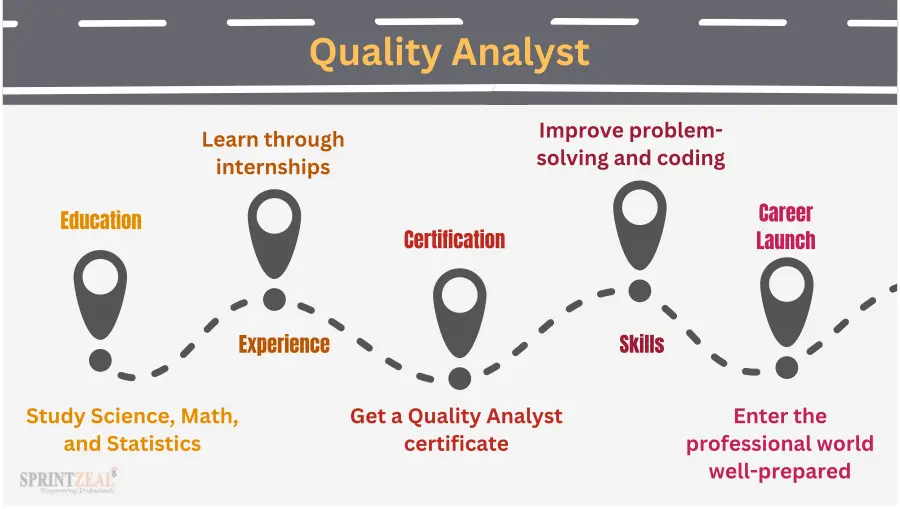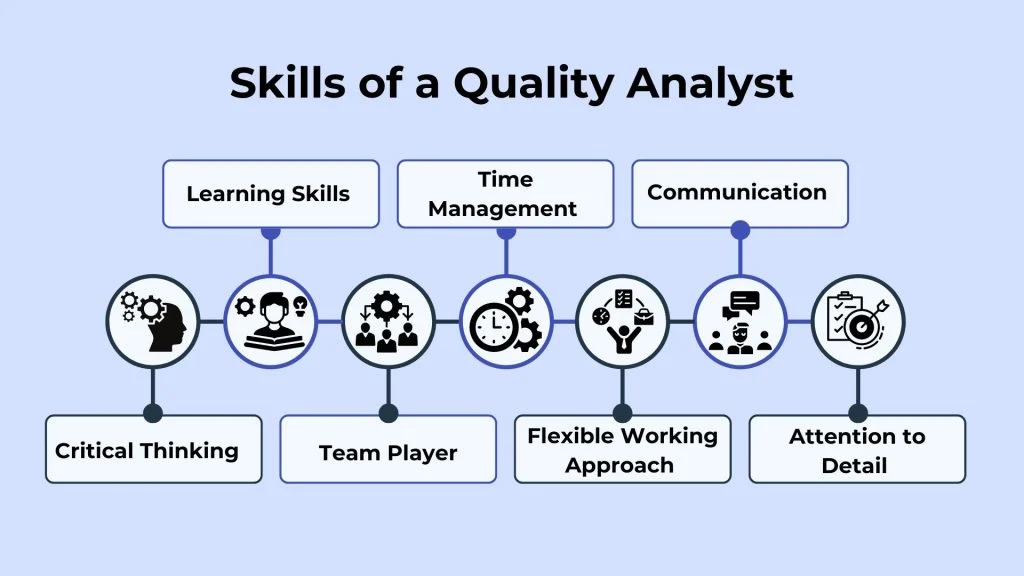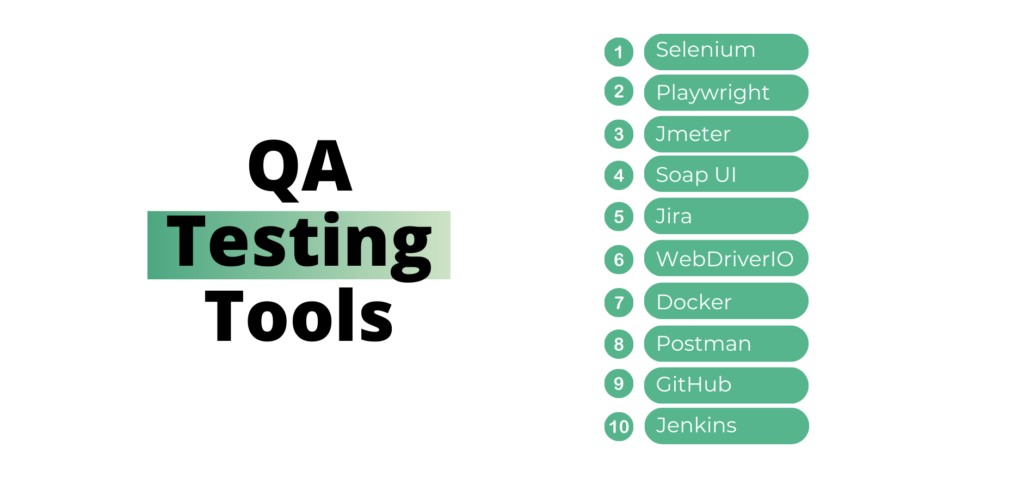What is a Quality Analyst (QA)?
A Quality Analyst (QA) ensures that products or services meet specific quality standards before they are delivered to customers. In the context of software development, a QA professional focuses on identifying and resolving issues in software applications to ensure they function as intended, are user-friendly, and meet business requirements.

Roles and Responsibilities of a Quality Analyst
Requirement Analysis:
- Understand the project’s requirements and objectives.
- Collaborate with stakeholders to ensure clarity of specifications.
Test Planning:
- Develop a comprehensive test plan outlining the scope, objectives, and testing strategy.
Test Case Creation:
- Write detailed test cases and scripts to verify software functionality, performance, and usability.
Testing Execution:
- Perform various types of testing:
- Functional Testing
- Performance Testing
- Regression Testing
- Usability Testing
- Security Testing
- Perform various types of testing:
Defect Identification and Reporting:
- Identify bugs, document them, and collaborate with the development team for resolution.
Automation Testing:
- Create and execute automated test scripts using tools like Selenium, JUnit, or TestNG (if applicable).
Quality Assurance:
- Ensure the final product meets quality standards and customer expectations.
Documentation:
- Maintain detailed test reports, defect logs, and metrics for future reference.
Collaboration:
- Work closely with developers, product managers, and stakeholders to improve software quality.
Continuous Improvement:
- Analyze testing processes and recommend enhancements to improve efficiency.
Skills Required for a Quality Analyst
Technical Skills:
- Knowledge of programming languages (e.g., Java, Python) for automated testing.
- Proficiency in test management tools (e.g., JIRA, TestRail).
- Familiarity with CI/CD pipelines and tools like Jenkins.
Analytical Skills:
- Ability to identify patterns, troubleshoot issues, and propose solutions.
Attention to Detail:
- Spot errors or inconsistencies in software behavior.
Communication Skills:
- Clearly document and communicate defects and quality concerns to stakeholders.
Problem-Solving:
- Think critically to address and resolve quality issues.
Domain Knowledge:
- Understanding of the specific industry (e.g., finance, healthcare) to identify relevant use cases.


Types of Testing Performed by Quality Analysts
Manual Testing:
- Conduct tests manually without the use of automated tools.
Automated Testing:
- Use tools to automate repetitive and complex test cases.
Functional Testing:
- Verify the software works according to its specifications.
Performance Testing:
- Evaluate how the software performs under various conditions.
Regression Testing:
- Ensure new code changes do not adversely affect existing functionality.
Security Testing:
- Identify vulnerabilities and ensure the application is secure.
User Acceptance Testing (UAT):
- Validate that the software meets business requirements and is ready for release.
QA Tools and Technologies
Test Management Tools:
- JIRA, TestLink, Zephyr.
Automation Tools:
- Selenium, Appium, Cypress.
Performance Testing Tools:
- JMeter, LoadRunner.
Defect Tracking Tools:
- Bugzilla, Mantis.
CI/CD Tools:
- Jenkins, GitLab.
Version Control:
- Git, SVN.

Why is a Quality Analyst Important?
Ensures Product Quality:
- Prevents the release of defective products to customers.
Customer Satisfaction:
- Helps deliver reliable and user-friendly software.
Cost Reduction:
- Identifying and resolving issues early reduces the cost of fixes later.
Compliance:
- Ensures the product meets regulatory and industry standards.
Brand Reputation:
- Maintains trust by consistently delivering high-quality solutions.
Career Path for a Quality Analyst
Entry-Level:
- QA Tester, Junior QA Analyst.
Mid-Level:
- QA Analyst, QA Engineer.
Senior-Level:
- Senior QA Analyst, QA Lead.
Specialized Roles:
- Automation Tester, Performance Tester, Security Tester.
Leadership Roles:
- QA Manager, Quality Assurance Architect.
Future Trends in Quality Analysis
AI and Machine Learning in QA:
- AI-driven test automation and predictive analysis for better defect identification.
Shift-Left Testing:
- Integrating testing early in the development lifecycle.
DevOps and Agile Integration:
- Continuous testing as part of DevOps and Agile methodologies.
Test Automation Growth:
- Increasing use of automated testing tools for efficiency.
Focus on Security Testing:
- Greater emphasis on cybersecurity in QA processes.
IoT Testing:
- QA practices for interconnected devices and systems.
Conclusion
A Quality Analyst is essential in delivering robust, reliable, and high-performing software or products. They act as the gatekeepers of quality, ensuring that the final product meets customer expectations and business objectives. As technology evolves, the role of QA professionals will continue to grow in importance, focusing on automation, AI-driven testing, and continuous improvement.